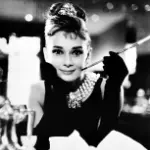Being a man in the United Kingdom doesn't always equate to a pleasant experience. There's an unspoken pressure to fit certain physical stereotypes, such as having disproportionately thin legs or experiencing hair loss too early. Society often expects men to embrace a heavy drinking culture, yet many might find themselves simply adding a splash of milk to their tea instead.

While in the United States, the parent-child "umbilical cord" relationship might not be so tightly woven, in the UK, most children grow up with their mothers. Unfortunately, British women tend to be highly educated, which results in girls raised under their influence being more assertive. Meanwhile, the boys growing up under the subtle shelter of their mothers tend to develop a habit of speaking softly and being courteous. Pride and Prejudice is nothing but Britain's version of a romantic soap opera. Yet, it gave birth to a universally recognized Elizabeth, and Diana was merely a Cinderella of failed family love, adorning this empire connected by one successful queen after another. It is no longer unusual to see British princes abdicate their throne to older divorced women.
Ever since Henry VIII boldly separated from the Roman Catholic Church for the sake of his divorce in 1533, all the way till today, British boys have grown up in a historical ambiance where all history books, novels, plays, and musicals convey one message: that even though British men are attracted to peculiar women, what truly matters is their ability to produce daughters. As the royal wedding approaches, major newspapers keep appealing. No matter how beautiful the queen may be, our princes are bound to go bald; daughters are the way to go!

The realm of royal scandals often brims with captivating history, scandalous affairs, and tales of kings whose love for beautiful women surpassed their love for their kingdom. These narratives frequently involve a kind and unassuming country girl entangled amidst conservative traditionalists, culminating in an ending where the main characters often meet tragic fates—either dead or injured. This storytelling style historically catered to audiences seeking romanticized stories, especially appealing to individuals perceived to have simpler tastes. However, contemporary British women are highly educated, posing a challenge to scriptwriters. Depicting them as simple and virtuous would be an oversight and could risk alienating the audience. Success stories like "Pride and Prejudice" from that era, notably showcase Elizabeth's character. Hailing from a middle-class background, she embodies the wisdom and grace of the upper class, while the women surrounding her either come from common origins or have attained wealth through marriage. Elizabeth, however, views material wealth with indifference, exuding purity akin to a lotus flower. In the end, while others face setbacks, she not only discovers true love but also enters into a noble family. While her archery skills may be exaggerated, a mere glance from her metaphorically hits the bullseye.

However, in today's world, discerning individuals have already lost interest in such stories. A more classic female character has emerged, such as George VI's wife, Elizabeth Bowes-Lyon, another Elizabeth. She is the woman behind the King, always holding his sleeve, providing him with support and comfort. She is a wise and graceful aristocratic woman. Even with such a background, she always puts her husband first, using her warmth and understanding to maintain the family. Marrying into nobility is no longer a contemporary topic. British women prefer to be seen as a responsible and forward-thinking group. In reality, this Elizabeth is just the creation of scriptwriters. Many details in this story are derived from Lionel Logue's diary, and the novel has already been formed. However, the wife of George VI, the mother of the current queen who lived until 2002, requested that this story not be screened until after her death. It was because this part of their history would be the most painful memory for her and her family. One can imagine the great effort the fragile King must have put into it. This is where the charm of the British royal family lies.
In London, it takes little time to distinguish the typical appearance of British gentlemen. They mostly have childlike faces, slender figures, and legs that leave people in awe. Their once-good-looking golden hair, messy yet charming in their youth, has already thinned. Whether it's a Mediterranean hairline or a shiny, rounded pate, they are all well-educated individuals who speak softly in public and are boisterous in bars. Among the excessively audacious British women, British men always appear excessively elegant. Although this film is about a king's story, it's also the director's father's story and the story of many British boys. Overcoming fear and bravely taking responsibility is not about two avant-garde and personality-driven sentences; it's about two sentences that are the hardest to put into practice.
Coincidentally, I went to Windsor and saw George VI's tomb in the church. A staff member, an elderly British woman with a cane, said to me, "Have you watched the King's speech? That's the King. He was not only the bravest man in our royal family but also the best-looking King in a Scottish kilt."






































Share your thoughts!
Be the first to start the conversation.